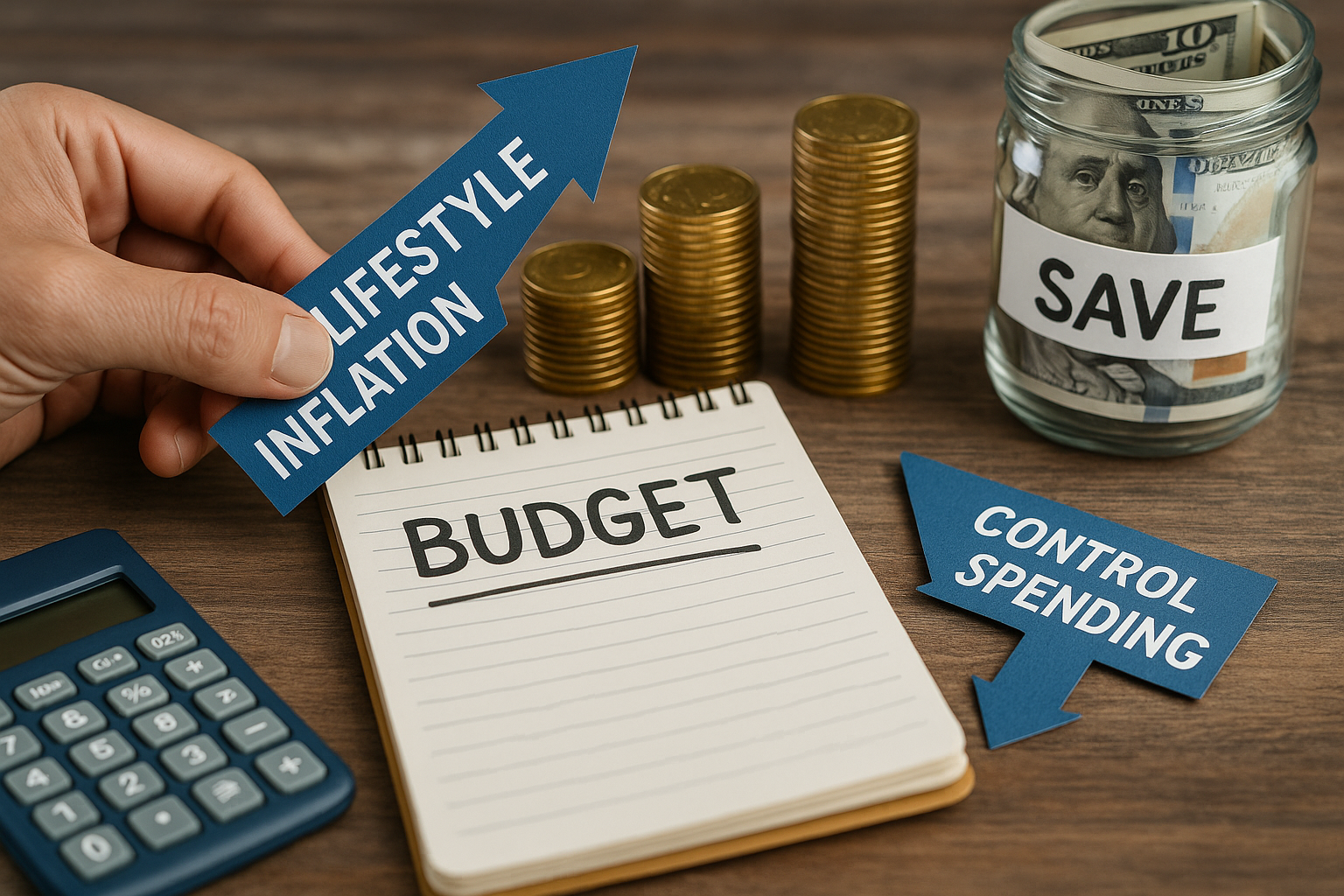Getting a raise, landing a new job, or increasing your income should improve your financial life—but it often doesn’t. Why? Because of lifestyle inflation.
Also known as lifestyle creep, this silent budget-killer happens when your spending rises as your income does. The result? You feel just as broke as before, even while earning more.
In this article, we’ll explain how lifestyle inflation works, why it’s so common, and how to prevent it—so you can grow your wealth instead of just your expenses.
What Is Lifestyle Inflation?
Lifestyle inflation is when you start spending more money simply because you earn more. Instead of saving or investing that extra income, you upgrade your lifestyle.
Common examples:
- Moving to a more expensive apartment
- Eating out more often
- Upgrading your car
- Buying new tech or clothes “just because”
- Taking more frequent or expensive vacations
It feels like progress—but it often leads to stagnant savings, ongoing stress, or even debt.
Why It’s So Easy to Fall Into the Trap
Lifestyle inflation is tempting because:
- You want to “reward yourself” for earning more
- Friends or coworkers upgrade their lifestyles too
- Social media promotes consumption and comparison
- You stop tracking your budget as closely
- Marketers target people with growing incomes
Without intentional planning, lifestyle inflation happens automatically.
Step 1: Celebrate, Then Strategize
It’s okay to celebrate a raise or big win—but don’t let it lead to mindless spending.
Try this:
- Celebrate with a one-time treat, not a recurring expense
- Pause before upgrading your lifestyle
- Ask: “What will this new money do for my future?”
Create a plan before your next paycheck arrives.
Step 2: Automate the “Wealth Gap”
Every time your income increases, create a gap between what you earn and what you spend.
How:
- Set up automatic transfers to savings or investments
- Increase retirement contributions
- Boost emergency fund or sinking funds
- Pay extra toward debt
Make sure part of every income boost goes toward building wealth, not just spending more.
Step 3: Define Your Core Values
Know what matters most so your money aligns with your life—not someone else’s.
Ask yourself:
- What experiences bring me lasting happiness?
- What purchases feel truly worth it?
- What are my biggest financial goals?
Let your values guide your spending—not marketing or peer pressure.
Step 4: Maintain Your Budget—Even With More Income
A bigger paycheck doesn’t mean ditching the budget.
Update your budget to:
- Reflect your new income
- Adjust categories responsibly
- Stay on track with goals
- Avoid letting spending get out of control
A budget gives you freedom with boundaries.
Step 5: Track Lifestyle Inflation Warning Signs
Keep an eye out for subtle shifts like:
- Monthly expenses creeping up
- Saving less despite earning more
- More impulse or status purchases
- New bills with no clear benefit
If your financial progress has stalled, inflation might be the culprit.
Step 6: Use the 50/30/20 Rule to Stay Balanced
The 50/30/20 rule helps divide your income wisely:
- 50% → Needs (housing, food, bills)
- 30% → Wants (entertainment, dining out)
- 20% → Savings and debt repayment
As income grows, keep needs and wants stable—and grow your savings slice.
Step 7: Delay Major Upgrades
Give yourself time before making big financial decisions like:
- Moving to a more expensive home
- Upgrading your car or phone
- Joining luxury memberships
Set a waiting period—like 30 or 60 days—to evaluate whether the upgrade truly improves your life.
Step 8: Set Exciting Financial Goals
Make saving and investing feel motivating, not restrictive.
Ideas:
- Reach $10,000 in your emergency fund
- Save for a home or travel fund
- Max out your IRA or 401(k)
- Build a “freedom fund” to take time off
When you have a powerful goal, spending less becomes easier.
Final Thoughts: Earn More, Keep More, Live Better
There’s nothing wrong with enjoying the rewards of your hard work—but do it with intention.
Avoid lifestyle inflation by keeping your priorities clear, upgrading slowly, and letting your income support long-term freedom—not short-term habits.
More money should make you more free—not more stressed.


Sem comentários